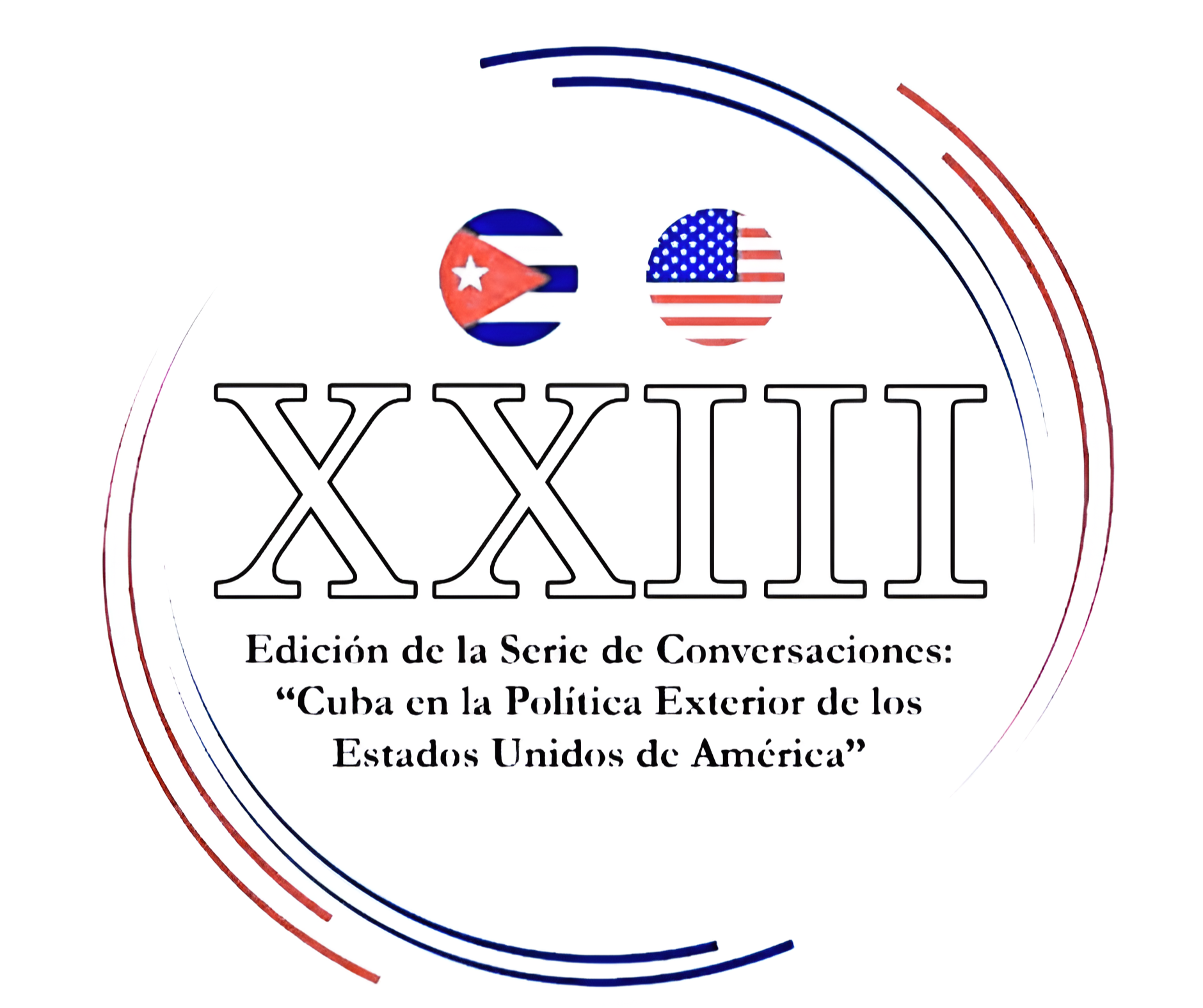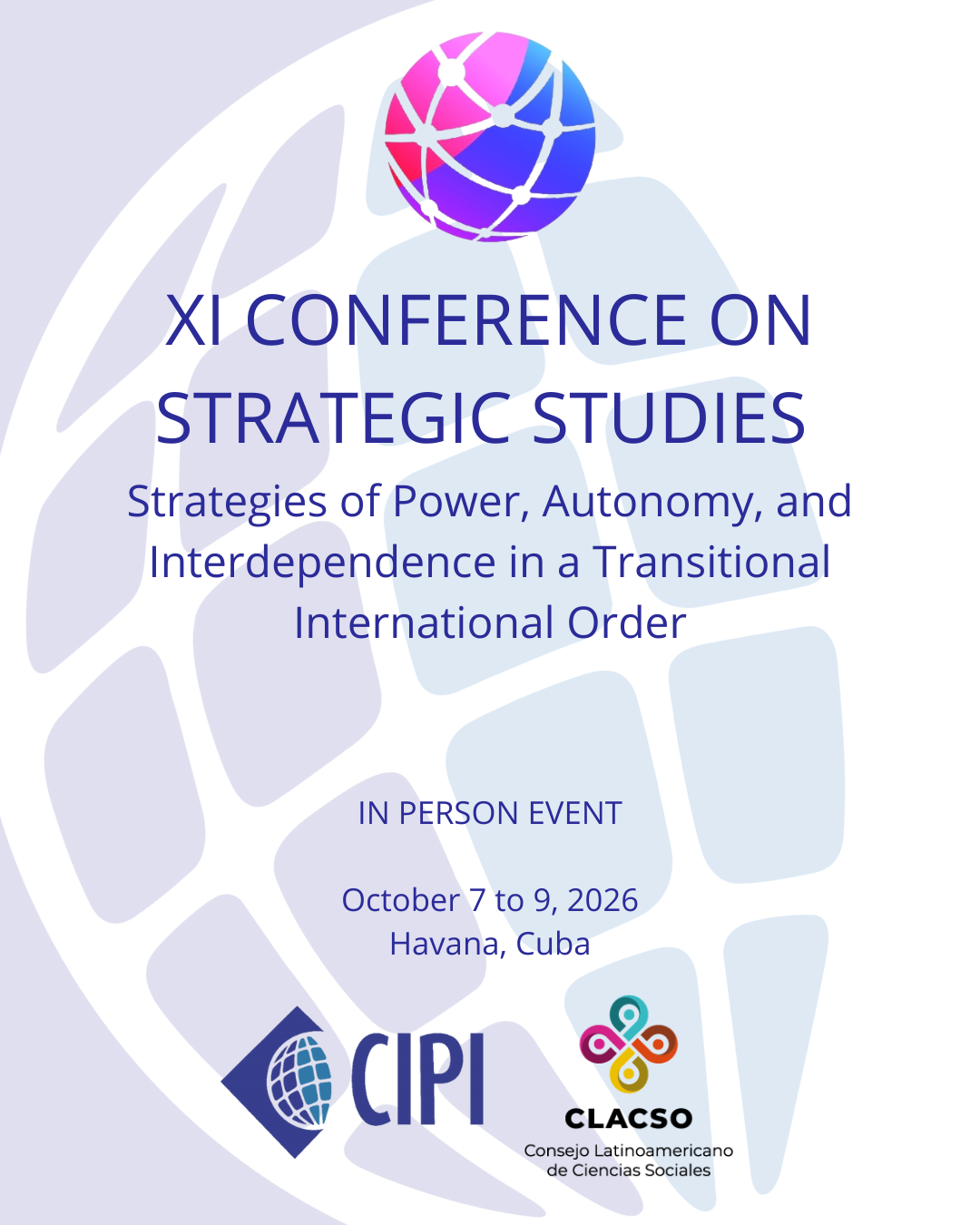Second Call for Papers – 23rd Annual Conversation Series «Cuba in the Foreign Policy of the United States of America»

The Center for International Policy Research (CIPI), co-sponsored by the Higher Institute of International Relations (ISRI), is hosting the 23rd Annual Conversation Series «Cuba in the Foreign Policy of the United States of America», to address the topic: The Return of Trump: Present and Future Impact on Cuba.
The meeting will take place on December 16, 17, and 18, 2025, and will feature several panels to discuss key issues in bilateral relations between the two countries. As in previous years, the activities will be broadcast live on digital platforms, and those unable to participate in person may do so virtually.
The event, which will take place one year after Donald Trump reelection intends to
provide a space to assess the effects of confrontational policies toward Cuba, within the framework of a maximum pressure approach in multiple areas, as well as other factors impacting Cuba, such as restrictive immigration policies.
The international context will also be reflected upon, marked by the evolution of long-standing geopolitical conflicts, the outcome of which will influence the international order. Analyses from diverse perspectives by experts on these topics will enrich the debate on the challenges of a difficult bilateral relationship characterized by tensions. At the same time, it will emphasize the benefits for both countries of respectful coexistence, with positive effects for both regions and other nations.
Those interested in participating should contact the Organizing Committee at eventoscubausa@gmail.com or mairarelova456@gmail.com.
We would appreciate if the information for the participation application includes:
- Full name
- Institution where you work and address
- Home address
- Telephone
Participants must provide the title of their presentation, along with an abstract of up to 250 words, which must be submitted by October 15.
The Academic Committee will evaluate the proposals and announce their acceptance on November 15.
Thematic Axes
Features of the Trump administration’s domestic policy. Impact to Cuba.
- Changes in diplomatic relations.
- Economic sanctions. Human rights approach. Continuity and changes.
- Financial sectors, corporations, political think tanks, and media-controlling entities behind Trump.
- The Cuban far-right in the U.S. and its role in the Trump administration.
- Analysis of Trump’s support among different population sectors.
- New actors in Trump’s cabinet. Contradictions.
- Impacts on Cuba from the new Congress composition. Cuban-American lawmakers. Oversight of executive policy. Control of funds.
- Lobbying and pressure groups for and against Cuba in the U.S.
- Influence of U.S. political polarization on Cuba policy.
- Mutual perceptions and political narratives.
- The role of civil society in both countries.
- Perspectives mid-term elections 2026 and presidential elections 2028.
- Legacy or the MAGA movement and its influence on american conservatism. Consequences for the Republican Party.
- Social situation in the United States due to regression in the popular agenda achieved in years and internal consequences.
Migration and the Cuban y Latin community in the United States
- Impact on Cuba of the Trump administration ´s new inmigration .
- Migration crisis during the Trump administration.
- Immigration policies and their influence on bilateral relations.
- Influence of the Cuban-American community on Trump’s presidency.
- Prospects for changes in the measures that privilege Cubans. Impact on the Cuban community and migration.
- Cuban community´s views on Trump´s new measures.
- Perspectives and visions of minorities in the United States
- Social impact of the new administration measures
Geopolitical issues in the new administration and its impact on bilateral relations between Cuba and the United States.
- Geopolitical current conflicts and the role of the United States.
- The Trump administration´s foreign policy of achieving peace through strength. The case for unrestricted support for Israel and agression against Irán. Lessons learned for the future.
- How do other countries in Latin America, Europe, Asia, and Africa view Cuba-U.S. relations?
- Prospects for cooperation to advance bilateral ties.
- Links with third countries such as China and Russia and others.
- Media and narratives. The role of media in shaping mutual perceptions.
- International engagement mechanisms as an alternative for Cuba in the hostile bilateral scenario with the U.S.
- Pretexts and retaliation by the United States against third countries for cooperation with Cuba.
- Campaings and narratives against Cuba throught third countries.
Challenges and opportunities in Cuba-U.S. relations. Cooperation in areas of mutual interest.
- Law enforcement and compliance.
- Science, Technology, and the Environment under Trump’s policies.
- Public Health.
- Academic and cultural exchanges.
- Sectors sympathetic to Cuba.
- Cooperation interests from U.S. states.
The future of bilateral relations
- Possible short- and long-term scenarios.
- The role of new generations in building bridges. Evolution of different population sectors within the U.S.
- Impact of both countries’ domestic policies on bilateral relations.
- Prospect of e scenario of interests in negotiation with Cuba
Culture, sports, and citizen diplomacy
- The role of art, music, and sports in bridging both countries.
- Cultural exchanges as a diplomacy strategy.
- The impact of globalization on cultural relations.
- Human rights.



Déjanos tu comentario